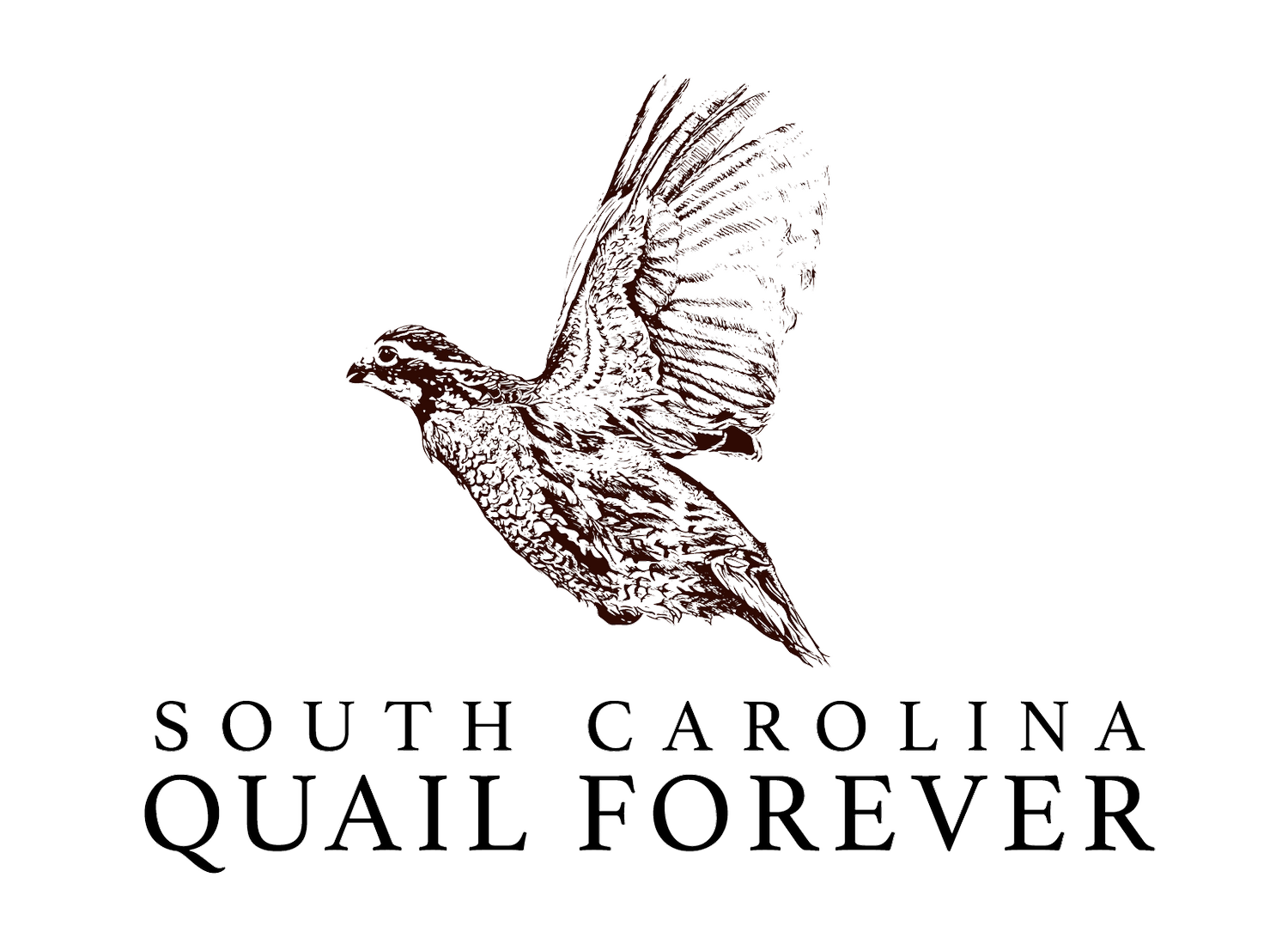Quail see new opportunities
Sen. Chip Campsen speaks about a topic he knows well: conservation, in particular that of quail habitats. Images courtesy of the author.
By Tim Askins
If you have seen as many hunting seasons as I, you probably remember seeing wild quail, hearing their distinctive “Bob-Bob-White” call, flushing a few coveys on every outing. Nowadays, most of us are content to lament the plight of the “prince of gamebirds,” the loss of habitat, hedgerows and the family farms that harbored the little bird.
Fortunately, the late Willie McRea, local landowner and conservationist, realized the plight and acted to preserve native habitat. His efforts to preserve Boone Hall Plantation was widely heralded as the most significant conservation easement in a lifetime for Charleston County. McRae backed most of the project, donating more than $28 million. “I have been waiting my whole life to make this conservation easement a reality. It makes me really happy to know that many generations to come can grow up and come back to the plantation where everybody should be able to enjoy it,” said McRea prior to his death in 2020.
“The collaborative approach to conservation can accomplish conservation on an ecosystem scale. Boone Hall is a prime example,” explained Senator Chip Campsen. “By pulling together the Conservation Bank, Greenbelt Program, Lowcountry Land Trust and the private gift of the McRaes’ voluntary conservation easements, we continue to add to our conservation holdings in the Lowcountry.”
McRea and Boone Hall Plantation also hosted the Quail Forever fundraiser, the “Guns and Roses” Banquet held on Feb. 14, 2020. That event saw more than 400 conservation-minded attendees raise more than $50,000 for Quail Forever’s habitat and outreach programs. Those funds are being used to improve habitat across the state.
Sponsors of that event met again recently at Boone Hall Plantation’s Cotton Dock with aspirations to continue McRae’s work. They understand that success in coming years depends on bolstering the membership, fundraising, and gaining a critical mass of support from the public.
Senator Chip Campsen spoke on the importance of conserving South Carolina’s natural resources by coupling private sector and public resources—the goal being, he quipped, “to make South Carolina the envy of the South.” As an example, he reminded attendees of the evidence all around them at Boone Hall and the McRae family’s gift to preserve Boone Hall's natural beauty.
“Boone Hall will continue to support Quail Forever by hosting fundraising events — forever.” Boone Hall CEO Jim Westerhold told the crowd. To honor the late Willie McRae and his lifelong interest in quail and quail habitat, the event will be renamed the Willie McRae Wildlife Benefit.
“We are extremely pleased to see Quail Forever growing as an organization in South Carolina,” said Robert Boyles, director of SC Department of Natural Resources. “The restoration of habitat and wild quail populations to our state is going to require everybody working together.”
“The Boone Hall collaboration is indicative of the commitment to habitat improvement across the state. If these efforts continue, we could see South Carolina rivaling the Red Hills area of Florida and Georgia. Thanks to the McRaes’ efforts we have begun conversations to acquire eight hundred acres of quail ground near Sumter that will have public hunting access and quail-centric management. It will be our first such effort east of the Mississippi,” explained Kenny Barker, Quail Forever regional representative.
Quail Forever wildlife biologist Jake McClain also revealed a new right-of-way program being instituted across the state in conjunction with Santee Cooper. “Quail Forever is uniquely positioned to ‘bring back the whistle’ in South Carolina,” he said. “Too few folks understand the habitat potential of the rights-of-way on their property, and we plan to provide both technical and financial assistance to help landowners create quality early-successional habitat under the transmission lines.”
It might come as a surprise that these rights-of-way could offer one of the best hopes to improve habitat not only for quail, deer, and turkeys but also bees, butterflies and native plant communities. The new program, dubbed ROW for Wildlife, will be funded by donations from the Willie McRae Wildlife Benefit with support of the S.C. Quail Council and their 28 strategic partners. With logistics from Santee Cooper, more than 5,000 miles of rights-of-way will be converted from mowed fields into a premier wildlife habitat highway.
Tim Askins is a USCG Master Mariner and has been a licensed captain since 1980. He continues to operate his real estate development and construction business while devoting time to his farm, children, and wife, Karen. He is an advocate for wildlife habitat with Quail Forever and returning ex-convicts to the workplace with the Turning Leaf Project.

